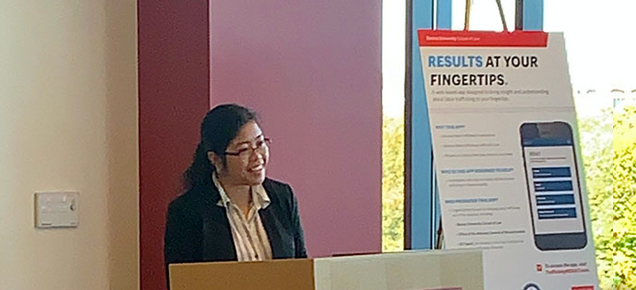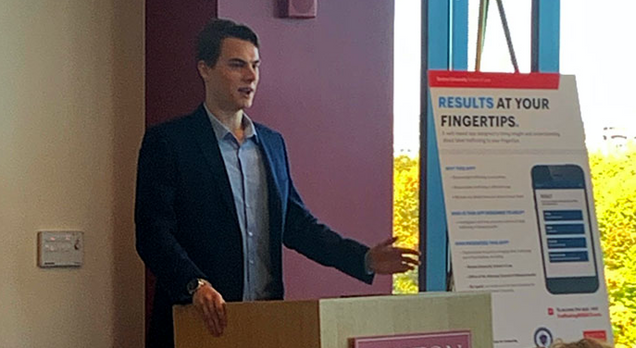App Helps Law Enforcers and Victims Recognize Labor Trafficking

RESULT (Recognize and Evaluate Signs to Uncover Labor Trafficking) Helps Law Enforcers and Victims Recognize Signs of Labor Trafficking by Asking a Series of Questions
Last week Thursday, Massachusetts Attorney General Maura Healey and Catherine Piedad, a woman exploited for labor as a domestic worker five years ago, spoke at the BU School of Law (LAW).
Although Piedad, like many other victims of labor trafficking, had her pay withheld and passport seized, local police dismissed her situation as a labor dispute. To prevent other victims from being neglected, Piedad and Healey worked with members of the BU community to develop an app that helps law enforcers recognize the signs of labor trafficking.
The app, RESULT (Recognize and Evaluate Signs to Uncover Labor Trafficking), helps identify victims of labor trafficking by asking a series of questions geared towards both victims and law enforcers. It also provides resources to find victim services and contact authorities. RESULT is web-based and open to public viewing.

To develop RESULT, Piotr Nojszewski (CAS’22) worked in collaboration with the Director of BU Spark! Ziba Cranmer and students from LAW’s Human Trafficking Clinic like Meghan Poole (LAW’19), who said RESULT “has the potential to help many people in the Greater Boston area”.
Only an undergraduate sophomore and already creating major change in his community, Nojszewski’s interest in the project grew after speaking with Cranmer, who he said “left [him] with a strong impression of the positive social impact of the project and convinced [him] to get involved.” Nojszewski is one of many students who benefit from collaboration with BU Spark! and Hariri Institute for Computing, both of which support data-based research and development to create interdisciplinary partnerships and affect real-world change.
For more information, visit BU Today and WGBH News. View the app RESULT to be informed about recognizing labor trafficking.